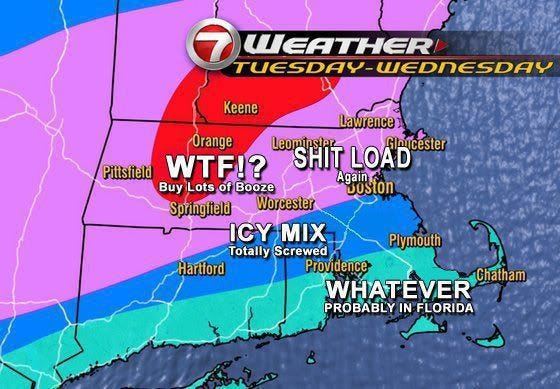Cut the weather folks some slack
Weather forecasters provide early warnings, not early guarantees.
By Tim Wilson
Does it make people feel better to have someone to blame when things don’t go the way they want?
When it comes to the weather it sure seems so.
Forget kicking the dog. Local weather forecasters take a virtual loafer to the teeth when someone’s golf game gets rained out, flights are delayed by snow, or the holiday picnic is waylaid because it’s too hot, too cold, too windy or just generally gloomy.
I get it that these are disappointments, but why subject the meteorological messengers to your verbal lightning and thunder?
Everybody says, “Boy, I wish I had that guy’s job. He gets paid even though he is wrong half the time.”
First of all, that is a gross exaggeration. Forecasters’ prognostications on precipitation and the like are much better than that. According to the National Oceanic and Atmospheric Administration, a seven-day forecast can accurately predict the weather about 80 percent of the time and a five-day forecast can accurately predict the weather approximately 90 percent of the time.
How would you like to take those odd of winning to Vegas?
And, a report last year by NPR told us these guys’ predictions have improved tremendously over time. Today, a five-day weather forecast is as accurate as a one-day forecast was back in 1980. We certainly could have used that in Boston 45 years before when we were hit by the Blizzard of ’78.
Speaking of New England weather, we conveniently forget that weather teams are trying to hit a literal moving target that is constantly encountering changing variables when it comes to predicting storms. With a coast to the east and to the south off Cape Cod, Rhode Island and Connecticut, winds and temperatures rapidly change turning Monday’s forecast details into a work of fiction by Saturday.
Fortunately, our local weather forecasters are well aware. When they do forecast storms, they typically note there are multiple possibilities for what could happen. And when a change occurs, they tell us pronto, albeit sometimes that is only hours in advance of bad weather’s arrival.
Here’s part of the problem that fuels all the haters. It’s those so-called smart phones where people use an app to find hour-by-hour predictions of the weather a day or two ahead of time and think they can plan based on that. This is why I think the devices are called smart. They suck all the intelligence out of your brain when you hold one to your head.
There is a reason that a variety of people – including Mark Twain and Will Rogers – have had a quote attributed to them, about places from New England to Chicago, to Kansas, and elsewhere, that “If you don’t like the weather, wait a minute.” As David Bowe, put it “Turn and face the strange Ch-ch-changes.”
I don’t know about you, but I would find it kind of boring if the weather didn’t throw us for an occasional loop. And even when it does, I appreciate that weather forecasters are giving it there best shot with technological tolls that didn’t exist when I walked to and from school, uphill both ways, in a foot of snow that was supposed to be flurries.
Think of weather forecasters this way. Wouldn’t you want your doctors to tell you if they thought you might have cancer? And wouldn’t you be glad they could run a test, even if it turns out you don’t have it?
That’s what weather forecasters do. They provide early warnings, not early guarantees. I don’t ask for more than that. Just give me a heads up that I might want to set the alarm an hour earlier, so I have to time to shovel and get where I’m going on time. If it doesn’t snow, I’ll gladly roll over and catch a few more Zs.
About the author: Tim Wilson is a lifelong resident of Massachusetts. He is passionate about his family, Marquette University, bicycling and all Boston sports.





